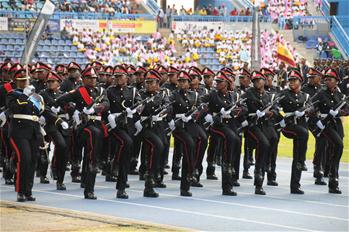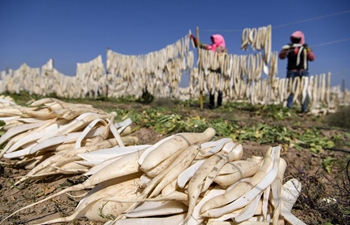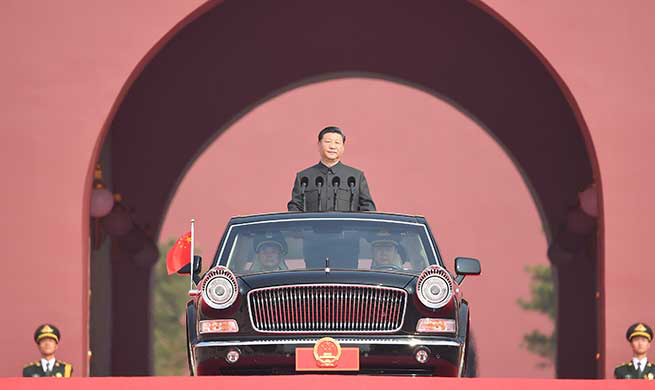TRIPOLI, Oct. 1 (Xinhua) -- The streets of the Libyan capital Tripoli, home to more than 2 million residents, are flooded with tons of waste, which threatens not only the environment but also public health.
Badruddin al-Najjar, director of the National Center for Disease Control, said the waste accumulated on public streets is a "chronic phenomenon" that needs radical solutions from the government, as the the crisis poses great threat to the public health.
"We know very well that the current war in Tripoli has increased problems and put many burdens on the government," al-Najjar told Xinhua.
Despite the importance of people's awareness of this problem and not throwing garbage on the streets and roads, the government is obliged to provide garbage bins and transport this waste once collected to major landfills, he said.
"Libya's environment is clean and perfect, but we destroy and pollute it with all kinds of solid waste, and we even burn such waste and pollute the air," al-Najjar added.
He expressed fear about an outbreak of Leishmania due to the rodents living in the garbage, as there were 8,000 new infections recorded last year. The number is likely to increase due to lack of medication and the lingering problem of untreated waste.
Nearly half billion dinars (300 million U.S. dollars) are allocated annually to treat solid waste in Libya. However, the problem of waste management remains unsolved.
Anwar al-Haj, a resident of Tripoli, said the Government did not provide necessary means to treat waste properly in time, which causes health and environment problems.
"We feel embarrassed and hurt when we mutilate our neighborhoods. It takes a pause and cooperation from the people and the government," he said.
"I don't think that if the conditions change and places are allocated for garbage collection, the people would deliberately throw waste in the streets," he added.
Mabruka al-Mahmoudi, another resident of Tripoli, is surprised that the government has not taken more drastic measures to address the issue of untreated waste piling up on the streets.
"I live in downtown Tripoli and the scene here is terrible. We are surrounded by garbage everywhere,"she told Xinhua.
Sarah Shibani, a Libyan environment researcher, believes that armed conflict clearly contributes to the untreated waste issue, and even reduces the chance for finding solutions.
"The impact of wars and armed conflicts is certainly devastating and reflects on the environment and the public health. As the parties involved in these conflicts are busy fighting, public services are neglected, including waste management," the researcher told Xinhua.
Shibani suggested adopting programs to manage and recycle the waste, which would bring substantial funds to the country, besides making good use of the materials made from recycling waste.
For nearly 6 months, the east-based Libyan army has been leading a military campaign against the UN-backed government in and around Tripoli, attempting to take over the city and overthrow the UN-backed government.
The fighting has killed and injured thousands of people, and also displaced nearly 120,000 civilians.













